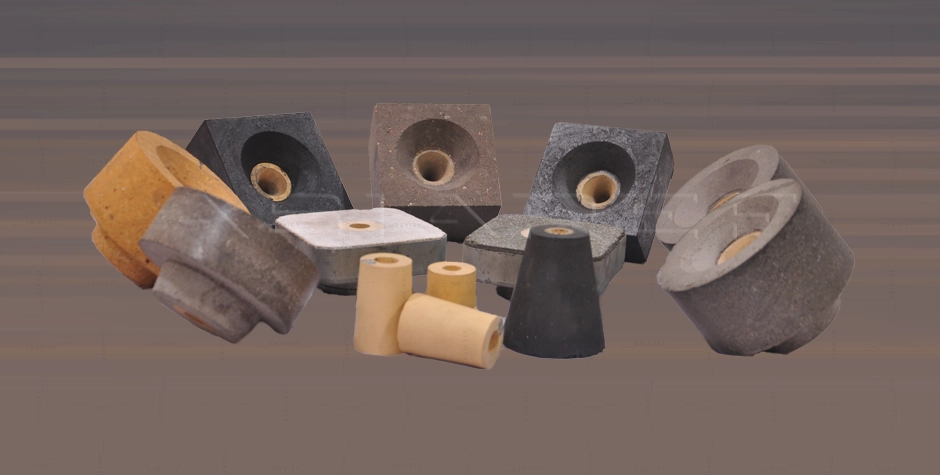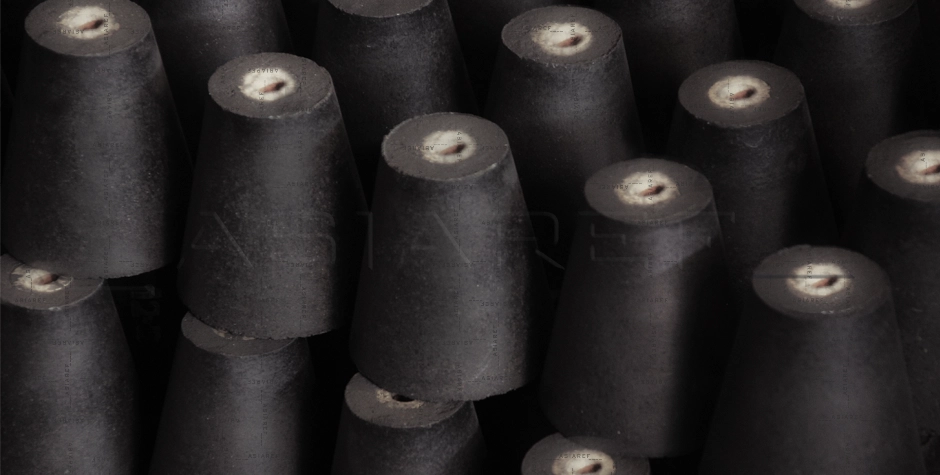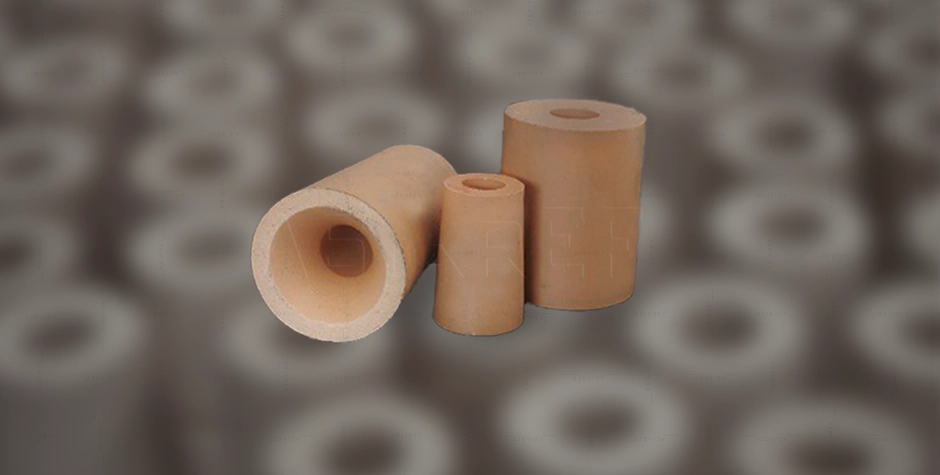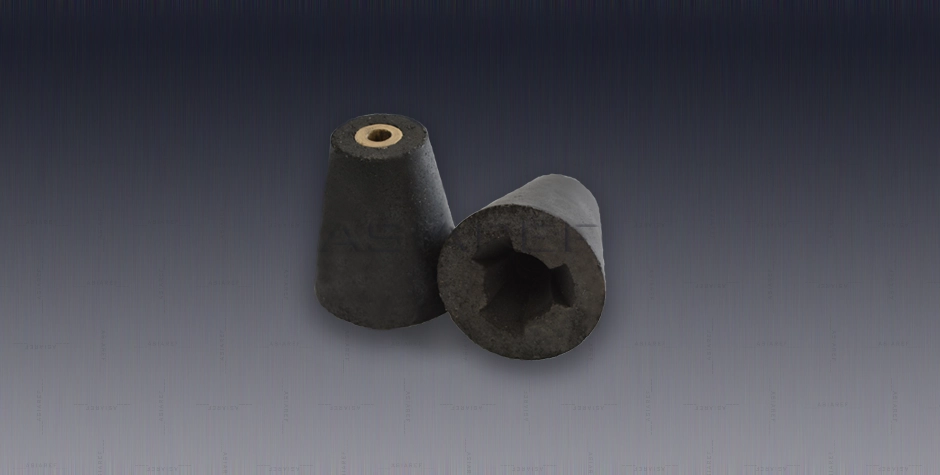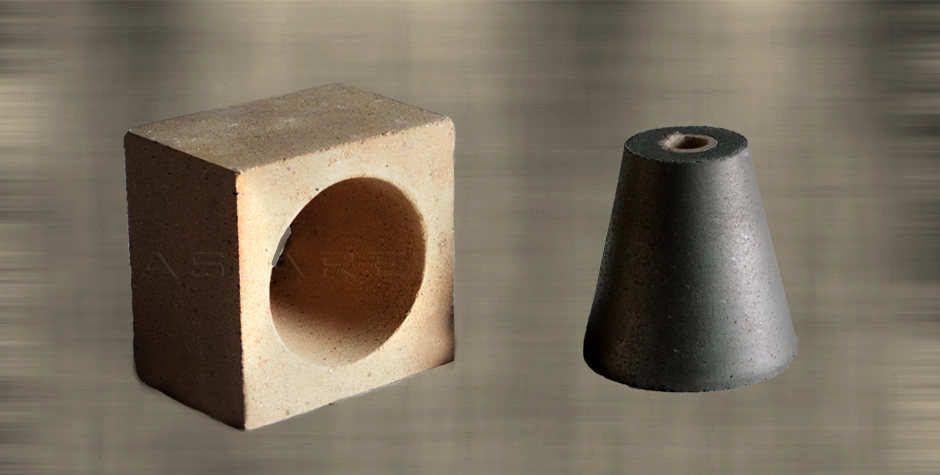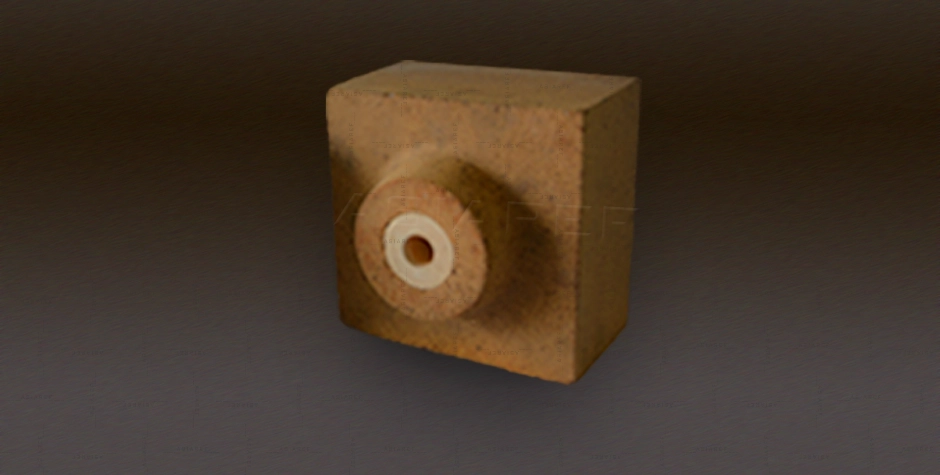Tundish Nozzle
Tandish nozzles are widely used today to control the flow of melt exit from the Tandish into the continuous casting mold (CCM). These nozzles can be classified based on different factors such as material, size, and appearance geometry. In terms of the material of the body, such as alumina, full zirconia, alumina-carbon, or alumina-zirconia, they are also produced with inserts with different percentages of zirconia.
Tundish Nozzle
The number of melting sequences is important in choosing a Tundish nozzle. Different nozzles for single use Melting or multiple melts are produced and used. It seems necessary to use more resistant material to achieve higher sequences. Contact us to choose the right nozzle at the lowest cost.
Alumina-carbon Tundish Nozzle with zirconia insert
Alumina-carbon nozzle with zirconia insert is usually used in medium tundish. Due to its shape and design, this nozzle shows high accuracy and safety factor in casting. This nozzle is assembled through the mortar inside the wellblock.
Zirconia insert
Using zirconia insert with high density and proper purity as well as high dimensional accuracy is one of the characteristics. are important factors in determining the performance of Tundish nozzles. Also, the way the zirconia insert is installed in the body of the nozzle is one of the important and determining indicators in the safety of using the nozzle.
Assembled Tundish nozzle
Due to the shape of the body, there is no need to use a well block in this type of nozzle. The insert of this nozzle is produced with different amounts of zirconia, which makes it possible to use it for single-melting and multi-melting applications.
.
High sequence Tundish Nozzle
The high sequence nozzle is suitable for melting conditions in the number of times and with working hours of more than 6 hours. The strength and thermal resistance of the body as well as the stability and dimensional accuracy of the insert are among the features of this nozzle, which makes it possible to use it for heavy and semi-heavy units.

